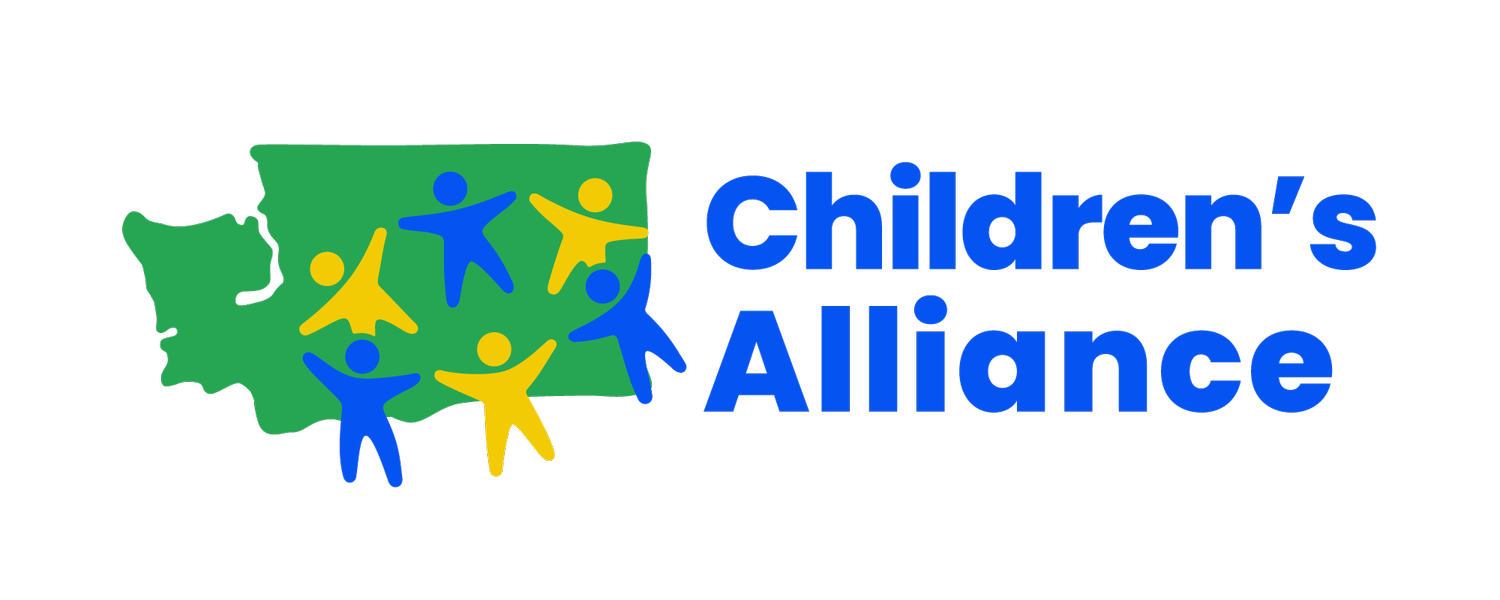NEW DATA REVEALS WA FAMILIES ARE STRUGGLING TO AFFORD CHILD CARE. RECENT LEGISLATIVE PROGRESS COULD HELP
The Annie E. Casey Foundation’s 2023 KIDS COUNT Data Book was released today and revealed that Washington state ranks 16th in the nation for overall child well-being, slipping down one spot from 2022. Each year, the Data Book presents national and state data from 16 indicators in four domains — economic well-being, education, health, and family and community factors — and ranks the states according to how children are faring overall. Of the four domains, Washington’s lowest ranking is consistently in education. This year our state is ranked 28th.
A child’s early experiences are the foundation for their future learning and success. That’s why we continue to be concerned about access to high-quality child care in our state. Washington has made significant progress since the passage of the Fair Start for Kids Act in 2021, but many families still cannot find the child care they need. This not only impacts children’s learning, but also parents and caregivers’ ability to work and provide for their families.
The Data Book reports that in 2020–21, 12% of children birth to age 5 in Washington lived in families in which someone quit, changed, or refused a job because of problems with child care. The data also shows that women are much more likely to face these negative consequences. The recent passage of House Bill 1106 should help alleviate some financial burden. Under certain conditions, this legislation provides unemployment insurance to parents unable to work due to lack of child care, helping families cover costs until they can re-enter the workforce.
Even if parents can find child care near their home, it is often unaffordable. Washington’s average cost of center-based child care for a toddler is $14,355 per year, 12% of the median income of a married couple and 39% of a single mother’s income in our state.
Lawmakers made some progress to address child care affordability this session by expanding access to Working Connections Child Care. Senate Bill 5225 made immigrant families, child care employees, and those directed by therapeutic courts eligible for child care assistance through Working Connections, while House Bill 1525 granted access to those enrolled in apprenticeships. Lawmakers also invested in child care providers by raising Working Connections’ reimbursements rates to the estimated cost of care in the state’s 2021 Market Rate Survey.
Despite the progress our state has made, we need to go further to ensure that every child can thrive in the first few years of their life and beyond. One critical action our lawmakers can take is to invest more in child care. State and local governments should maximize remaining pandemic recovery act dollars to fund child care infrastructure. Washington lawmakers should seriously consider proposals that ensure super-rich state residents pay their fair share in taxes for public goods that benefit everyone.
Children's Alliance partners with the Annie E. Casey Foundation on KIDS COUNT in Washington, reporting data on child and family well-being. Find hundreds of indicators at the KIDS COUNT Data Center.
